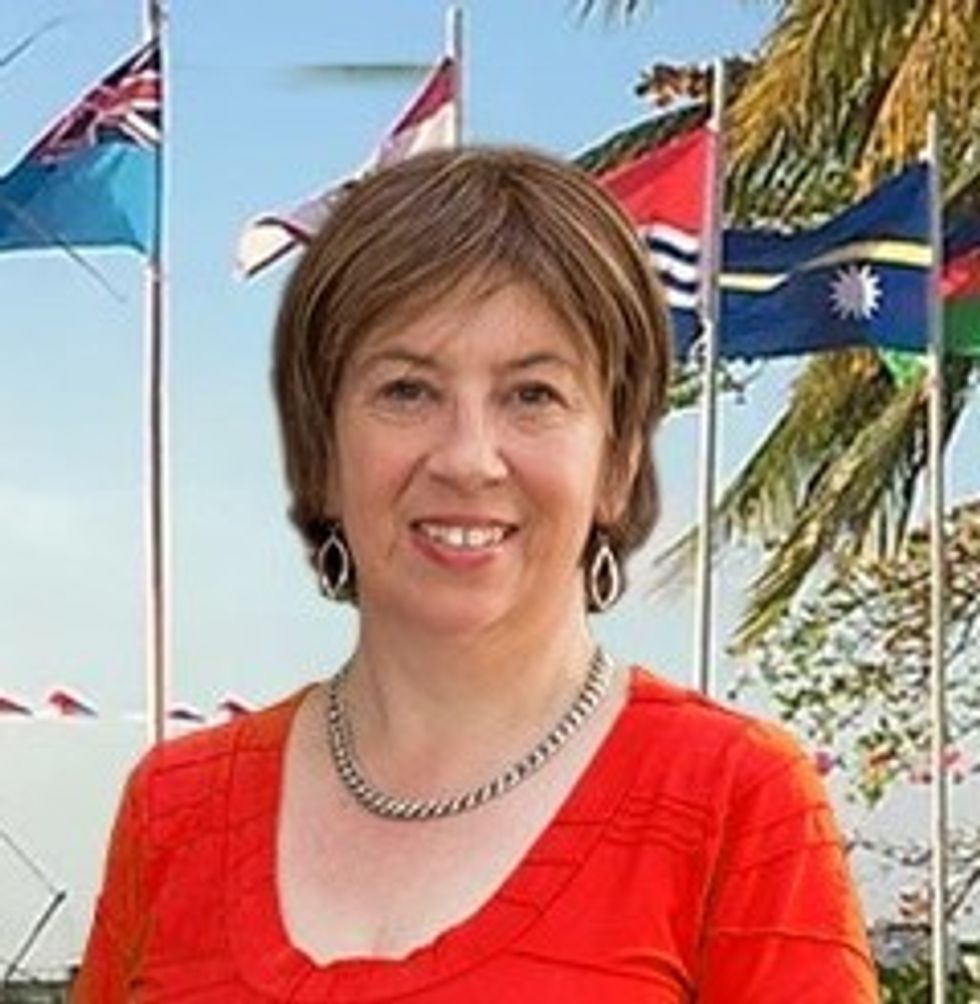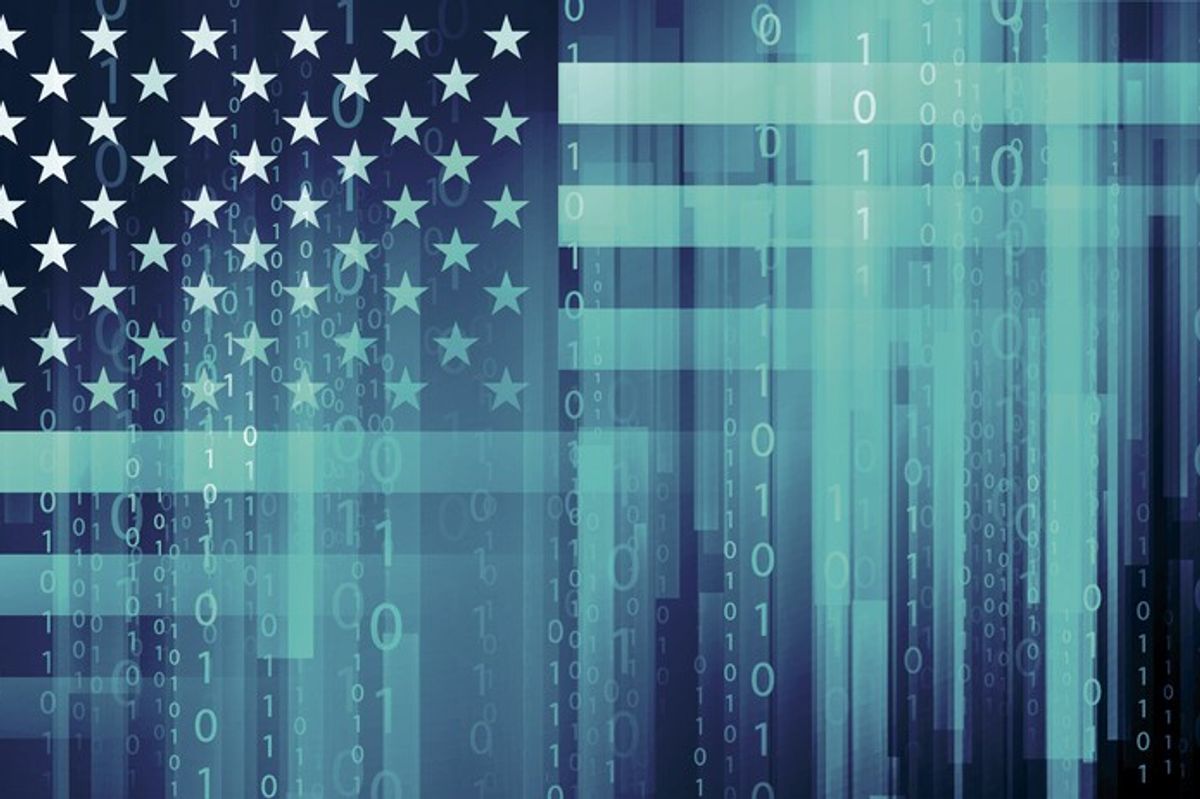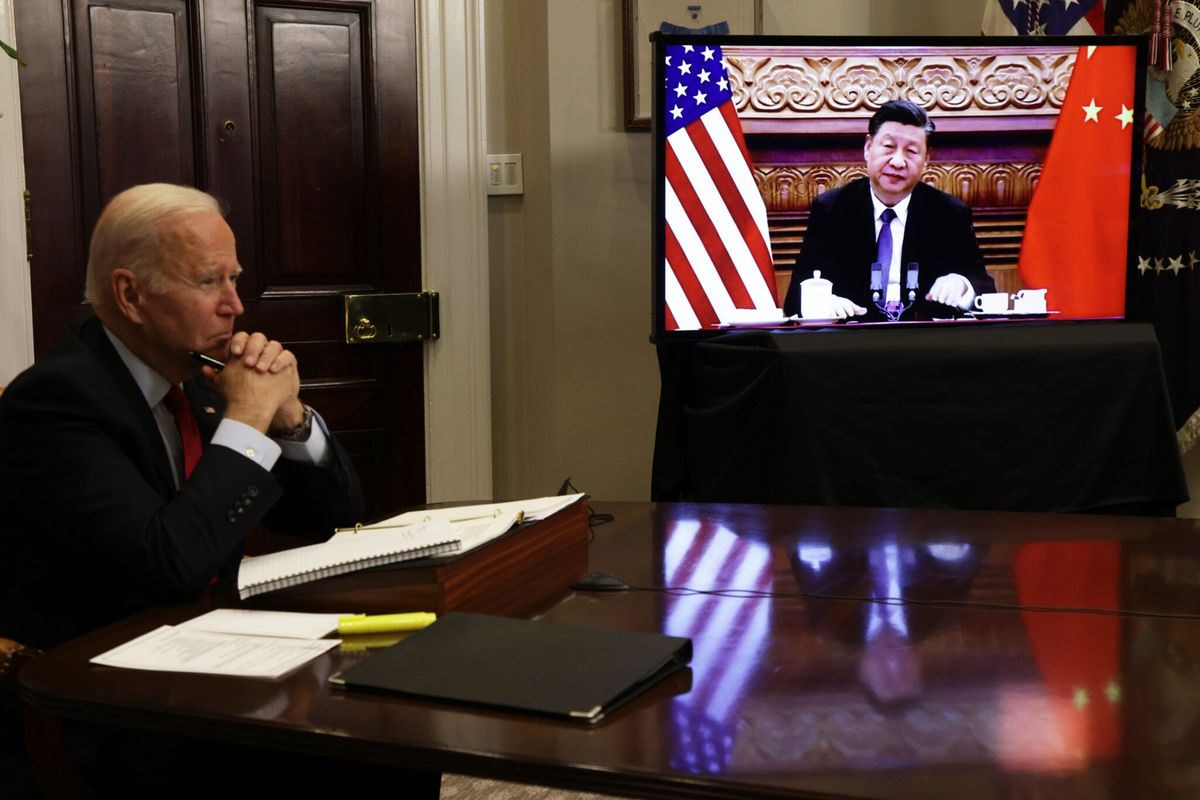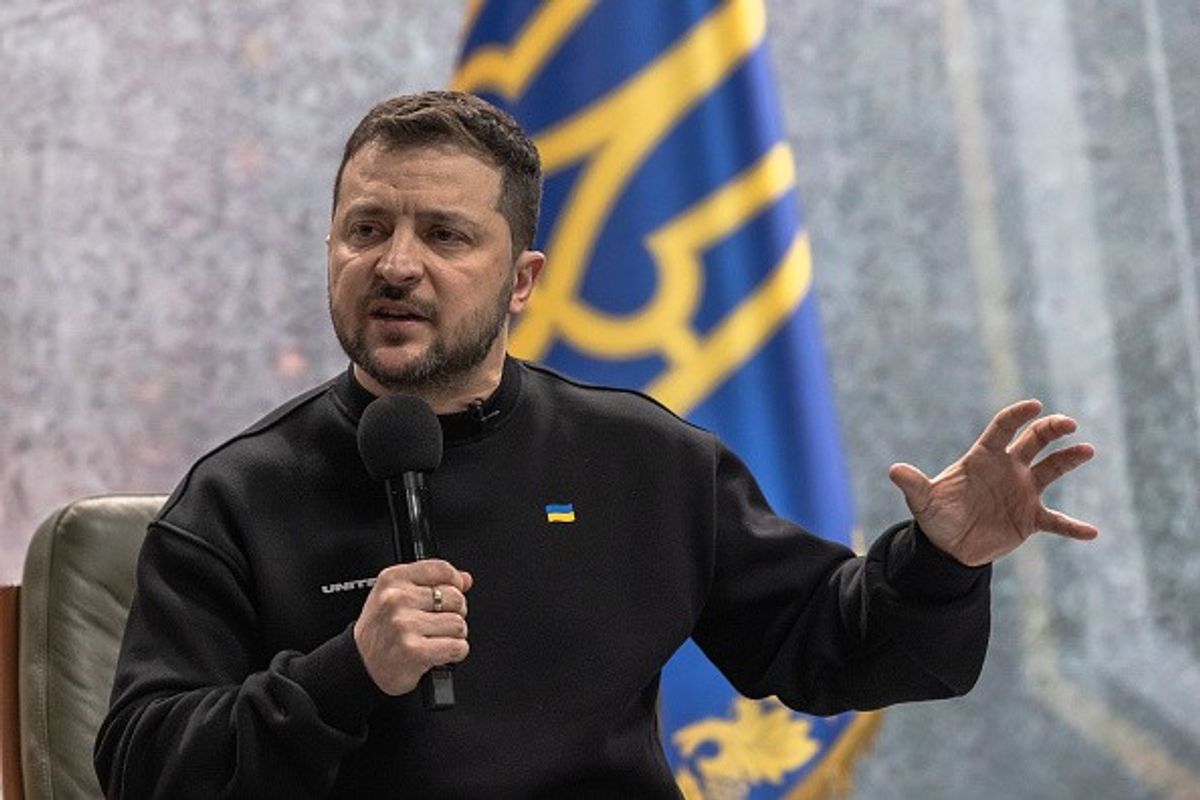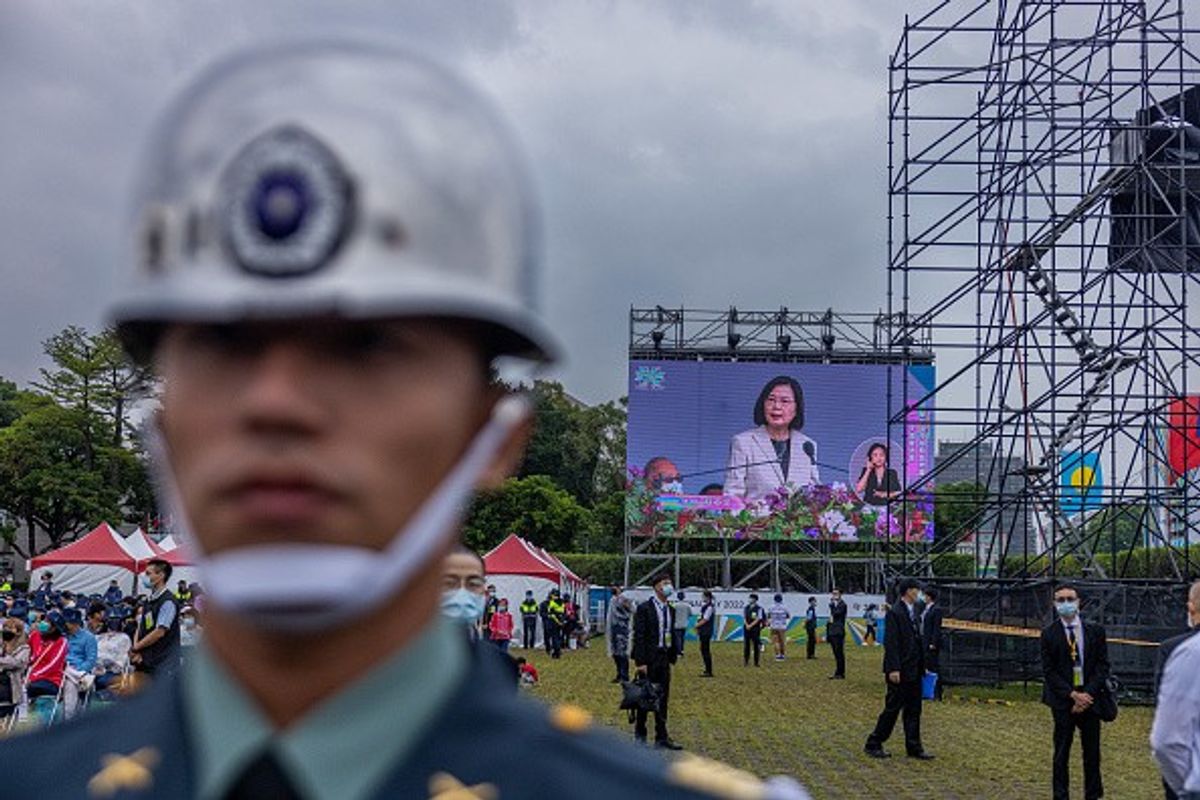EXPERT ANALYSIS — A security agreement signed by China and the Solomon Islands in April, has created waves of concern throughout the region and reaching as far as the United States. Initially leaked as a draft, the deal was formally signed at a meeting in Beijing between foreign ministry officials of the PRC and Solomon Islands, triggering alarm over what it means for Australian national security.
The agreement reportedly contains a provision that allows the Solomon Islands to call on China to send police and military personnel to assist local law enforcement in maintaining civil order and protecting lives and property.
China followed the Solomon Islands initiative with a Pacific Islands tour by PRC Foreign Minister Wang Yi, who recently met with representatives of eight island nations while on a visit to Fiji where diplomats are reportedly working toward cooperation measures on issues ranging from health to disaster management to agriculture.
In late May, the president of the Federated States of Micronesia urged twenty one other Pacific Island nations not to agree to Beijing’s proposal. President David Panuelo said the China-Pacific Islands common development framework aimed to achieve for China “access and control of our region, with the result being the fracturing of regional peace, security and stability”.
Meanwhile, the U.S. has accelerated steps to reopen its embassy in the Solomon Islands, which has been closed since 1993, and Australia has agreed to set up a border post to provide an emergency services communication network.
The Cipher Brief turned to several experts in Pacific regional affairs to go deeper on what this means for the region and for national security.
Tess Newton Cain, Project Lead for the Pacific Hub at the Griffith Asia Institute
Dr. Newton Cain has a degree in Law and a PhD in Law and Criminology from the University of Wales (Cardiff). She is a former Lecturer in Law at the University of the South Pacific (USP). On leaving USP in 2001, she went on to work as a consultant and adviser to the Office of the President of Vanuatu, the Pacific Islands Forum Secretariat, the governments of Australia and New Zealand, the World Bank, and the United Nations.
Charles Edel, Inaugural Australia Chair and Senior Adviser at the Center for Strategic and International Studies.
Prior to CSIS, Dr. Edel taught at the University of Sydney, where he was also a senior fellow at the United States Studies Centre. Dr. Edel was a professor of strategy and policy at the U.S. Naval War College and served on the U.S. secretary of state’s Policy Planning Staff from 2015 to 2017. In that role, he advised the secretary of state on political and security issues in the Indo-Pacific region.
Liesl Jordan, Former Senior Security Representative for the Australian High Commission
From 2012-2016, Liesl Jordan was the Australian Government's senior security representative for the Australian High Commission in London. Ms. Jordan is now CEO of Connect2Effect, a consulting firm assisting international companies in navigating and positioning technologies in Australia, Southeast Asia, and the Indo-Pacific region.
ANALYSIS
The Cipher Brief: Based on China’s past diplomatic and economic initiatives, especially in the developing world, what is the potential for seemingly benign agreements with Pacific Island nations to develop into footholds for PRC military and intelligence deployments and operations?
Newton Cain: There is only one established military base outside of mainland China. Within the Pacific islands region, China has longstanding relationships with many countries. For example, Vanuatu and China have been diplomatic partners for 40 years. Given the diplomatic footprint, with embassies in all ten of the countries that recognize PRC, ‘footholds’ for intelligence deployments already exist and it would be surprising if they were not utilized (as is the case with deployments by other powers). If the question is, will there be a military base in Solomon Islands or another Pacific island country the most important thing to be in touch with is what is happening domestically. Some countries (PNG and Vanuatu for example) are longstanding members of the NAM. Getting access to land for such a purpose would be hugely problematic given the prevalence of customary ownership – this is why the Tulagi scare was never really scary [a reference to a Chinese company's 2019 agreement to exclusive development rights on the island of Tulagi in the Solomon Islands chain].
Edel: Beijing is looking to build off its recently signed agreement with the Solomon Islands, and significantly expand its presence, influence, and control of the Pacific. The full scope of Beijing’s ambitions can begin to be seen in the leaked economic and security deal Wang Yi was offering on his trip this past week. The agreement not only links economic and security cooperation, but also would also significantly broaden China’s influence across the Pacific—including into data networks, police training, and maritime surveillance.
Despite repeated claims from China that it has no intention of establishing a military base in the Solomon Islands or elsewhere in the region, its track record and its ambitions suggest otherwise. In Cambodia, Djibouti, Pakistan, and Sri Lanka, China has initiated major infrastructure projects that have resulted in China obtaining access to strategically significant port facilities. And as Beijing has demonstrated in the South China Sea when it claimed and subsequently militarized unoccupied islands, the Chinese government has a track record of publicly denying its true intentions while taking steps to enlarge its global military footprint.
Beijing’s search for a military foothold in the Pacific represents an expansion of what it has already done elsewhere. Establishing a presence in this regioncould accomplish several strategic goals at once—securing Chinese sea lines of communication, increasing intelligence collection on allied forces, keeping Australia and New Zealand boxed in, and complicating any U.S. plans to move forces into the region. With this deal, the Solomon Islands has now opened the door for a Chinese military presence in the Pacific. The question for the United States and its allies now is how to respond.
Jordan: Agreements such as that recently signed with Solomon Islands’ PM Sogavare together with the proposed 10-Nation agreement, which covered everything from security to fishing rights, demonstrated China’s ambition and determination to capture control of the region. Although subsequently scaled back in the face of concerns raised by president of the Federated States of Micronesia David Panuelo, it does little more than temper the timing of China’s true ambitions. The opportunity to keep China out of the region and off our doorsteps has long passed and the real issue now becomes to what extent we are able to mitigate these risks through consistent and actionable policy. The potential for Chinese military bases in the Solomons only 2000kms from our shore, or even closer if Papua New Guinea were to agree to a similar arrangement, should leave little doubt in the mind of new Australian Prime Minister Albanese that Australia, in concert with its regional partners, must act now.
In short, the potential for such transition is high. It’s clear that China will look to turn its Pacific footholds – even toeholds – into potential force projection. The development of multi-use facilities, broadly permissive flexible agreements and advantageous relationships with key leaders give China the foundation it needs. While China’s strategic intent is clear, its method is less certain. The timing, sequencing, openness and risks involved in that building on that foundation will be affected by a multi-layer, muti-player combination of factors, including wider geo-strategic developments. Australia, the US and other like-minded Pacific stakeholders may be less inclined to talk openly about ‘red lines’ but they will certainly be looking for – and seeking to pre-empt and thwart – them, whenever and however they may be drawn.
The Cipher Brief: On topics of genuine concern to Pacific Islands nations, such as fishing rights, agriculture, and climate change, what advantages or incentives could these states gain through agreement with the PRC?
Newton Cain: China is seen, with some justification, as a location of significant technical expertise in areas such as agriculture and climate change – e.g. affordable renewable energy. In Papua New Guinea, people point to the fact that they are now able to grow rice thanks to China after years of having Australian experts tell them that this crop could not flourish in their country. China offers lots of scholarships in technical subjects rather than the ones that are most often associated with Australian offerings (Law, Education, Health, Public Policy). When it comes to fisheries, PNA countries [Parties to the Nauru Agreement — Federated States of Micronesia, Kiribati, Marshall Islands, Nauru, Palau, Papua New Guinea, Solomon Islands and Tuvalu] already doing very well in terms of increased revenue via their Vessel Day Scheme. To them, it probably is not very significant who buys their fishing days provided they are getting a good price for them. Some countries (e.g. Papua New Guinea and Vanuatu) see opportunities to negotiate for processing agreements which have the advantage of creating local employment, including for women.
Edel: No doubt there are attractive elements to working with the PRC for many of the Pacific Island nations—especially in terms of the development funding and infrastructure builds. On climate change, it's more of a mixed bag as China is the largest global emitter of carbon dioxide and, I believe, produces about 25 percent of all greenhouse gases worldwide. Beijing has pledged to work with some island states to offset the effects of climate change, but its own emissions continue to move upward at an alarming pace. On fishing, I believe they signed one or two agreements last week on fishing, but again, it's a mixed picture here as the China is responsible for drastically depleting global fish stocks and undermining traditional livelihoods of many countries.
The Pacific Islands governments are concerned about the nature of Chinese activities in the Pacific states, but it is not their primary concern. Rather, regional leaders emphasize the importance of finding ways to drive development, build needed infrastructure, and address the existential risks of climate change to which low-lying Pacific Island states are especially vulnerable. The easiest way to earn trust and become a better regional partner will be to work with the Pacific Island states—individually, collectively, and regularly—to address these concerns, which were laid out by Pacific Island leaders in the 2018 Boe Declaration on Regional Security that embraced an “expanded concept of security” to deal with the range of challenges facing the Pacific.
Jordan: Leaders of Pacific island nations are fully aware of the shifting sands of geopolitics and their own geographic significance. Prime Minister Sogavare and other leaders see the potential to translate modern-day strategic competition between the U.S. and China into tangible economic gains and diplomatic wins, including on probably the most important issue to all Pacific island nations, that of climate change. But the playing field is not level and China’s deep pockets can make vulnerable small nations susceptible to money politics, ‘elite capture’, and the burden of insurmountable debt, entrenching corruption and poor governance.
Individually and occasionally collectively, the Pacific Island nations are in a strong position. China will offer money, capabilities and, importantly, a partnership they will characterise as contemporary realpolitik, as opposed to the West’s immutable colonial precepts and its insistent preference for exporting Western values. Moreover, China offers the Pacific nations not just aid and assistance but a sense of emergent equality and respect – however shallow, self-serving or illusory that offer may be. For many Pacific leaders, it’s not just what assistance they choose but how it makes them feel about themselves and their countries that’s important in this web of personalities and politics.
Much of China’s cornucopia may help achieve progress on issues of genuine concern. But China has laid out this picnic before, notably in parts of Africa and Southern Asia. That hasn’t always gone well for the picnickers. Initial success has been followed by evidence of underlying ineffectiveness, limited performance and less than comprehensive after-care; all lessons that Australian, the US and others will encourage the Pacific to consider.
The Cipher Brief: How justified is the criticism that the U.S, Australia, and other developed states have neglected Pacific Islands’ partnerships and interests? While not specifically addressed to the Pacific Island nations, will multilateral initiatives such as the Indo-Pacific Economic Framework for Prosperity or the “Quad” partnership provide opportunities to enhance cooperation and ties with the Pacific Islands, and temper Chinese ambitions for the region?
Newton Cain: It varies as between countries. The U.S. has certainly been absent in terms of diplomatic presence from many countries and the withdrawal of Peace Corps volunteers is largely viewed with disappointment in a number of places (Tuvalu is a good example). There is a lot to do on this score, in terms of increased presence (still no Ambassador in Fiji for example) and also appropriate engagement – both in terms of what the US does and also the way in which it does it.
The Quad and other groupings (e.g. AUKUS) that do not include Pacific participation run a very high risk of being exercises in ‘talking about us not with us’ – Australia may offer itself as a vehicle for conveying Pacific concerns to the U.S. and other partners as may New Zealand (although as yet they are not in the Quad or AUKUS and it is probably unlikely that they will be). But this needs to be treated with caution. Australian knowledge and understanding of Pacific issues, concerns, ways of thinking and being may look well-developed from the outside. However, there are significant capacity deficits in the policy and strategy community. Some work is being done to rectify this and there will hopefully be more. But for people in [Washington] who want to know more about what is going on in the Pacific, they need to be expanding their knowledge bases beyond what they have shared with them by Canberra. In particular, they need to be activating appropriate processes that allow them to hear directly from Pacific interlocutors.
Edel: Even though the deal [proposed by the PRC] appears to be shelved for the time being, and there has been significant pushback from the Pacific Islanders themselves, it’s quite clear that Beijing is doing everything in its power to extend its influence over, and control of, this vital region. These efforts will continue and, will likely find success, until the needs of the region are taken as seriously as are Beijing’s ambitions. It is well past time for the United States, Australia, and others to increase their partnership with Pacific Island nations.
The United States and its partners should invest in projects that improve basic infrastructure and expand access to health care and Internet connectivity in the Pacific Islands. Legislatures in Australia, New Zealand, the United States, and elsewhere can also find ways to collaborate with their democratically elected counterparts across the Pacific Islands to discuss ways to improve governmental accountability. All of these commitments will require greater resources from the United States and its partners, changes in domestic legislation in multiple countries to allow for expanded work permits, and more sustained engagement with the region.
The United States can also demonstrate a renewed commitment to the Pacific Islands by making some key bureaucratic changes. Washington may be planning to reopen the U.S. embassy in the Solomon Islands that it closed in 1993, but the Biden administration has not yet appointed ambassadors to either Fiji or Papua New Guinea. It does not have resident ambassadors in Kiribati, Nauru, Samoa, Tonga, Tuvalu, or Vanuatu (they are currently represented by U.S. regional ambassadors). It is hard to make an argument for serious and sustained engagement with the Pacific community without an active U.S. presence. Beyond those posts, Washington should consider naming an ambassador to the Pacific Islands Forum, modeled on the position of the U.S. ambassador to the Association of Southeast Asian Nations. Additionally, Washington needs to renew its compacts of free association with the Federated States of Micronesia, Palau, and the Marshall Islands. For decades, these deals have allowed the United States to limit other states’ military access to compact countries in exchange for U.S.political, development, and defense guarantees.
Jordan: Australia’s approach to its key strategic regional partnerships has long been based principally on geography, history and political alliances. Australia has reinforced and adjusted its traditional bilateral and Five Eyes partnerships. It has also devoted considerable effort to bolstering engagement with key regional institutions and ‘beacon’ nations and developing deeper partnerships with like-minded countries such as India, France and Vietnam. This approach has created a set of regional security partnerships that are both more complex and more necessary than the relatively simple hierarchy that preceded them.
The Quad partnership also provides a vehicle to coordinate the efforts of member countries as well as those outside the Quad like New Zealand, which has a shared history and strong demographic and cultural links with Polynesia. New or refurbished diplomatic partnerships (IPEFP and ‘Quad’) are valuable global markers but will figure less prominently in Pacific leaders’ thinking and decisions.
Australia needs to repair the perception of regional neglect by doing more than offering more of the same. Perspective shift will be as important as policy development – Australia and like-mindeds will need to foster relationships with Pacific nations that are not all about making choices between the West and China. No one, or any nation, likes to feel like a pawn in a game played largely by others. This will require Australia to master the fine art of deciding how and when to be a partner, an ally, a friend, a donor and a mentor for the Pacific lsland nations.
The piece includes research, analysis and reporting by Cipher Brief Analyst Ken Hughes
Read more expert-driven national security insight, perspective and analysis in The Cipher Brief





